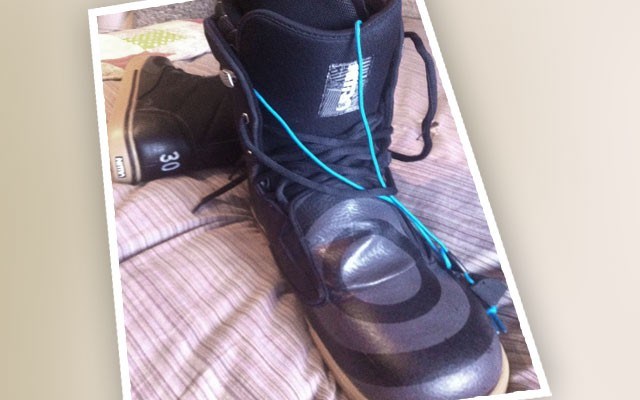Whistler Blackcomb (WB) is publicly apologizing for a mistake in its sorting process that sent hundreds of old ski and snowboard boots to the dump, some with lots of life still left in them.
"No question, some of the boots should not have been sent," admitted Arthur De Jong, WB's mountain planning and environmental resource manager. "It was a mistake and we apologize for that and we appreciate when our community calls us on it."
The issue came to his attention after a community member emailed the company expressing her concerns, especially in light of the fact that she now has a "brand new" pair of snowboard boots that were left for garbage.
"I was disgusted," said Joanne Van Engelsdorp, upon learning of the mass purge which included some usable boots.
First and foremost Van Engelsdorp is concerned about the environmental impact.
"As an environmentally aware community, we have to recycle, reduce, reuse," she said. "Our main industry comes directly from environment. If we are going to dump whatever we want, whenever we want, we will have no more snow, no more trees, and no more air."
Her second concern is that some community members could have benefited from the gently used gear.
"If Surefoot can reuse insoles, WB can find a better way to dispose of lightly used gear," she said, referring to the new program at Surefoot that sees ski boot liners repurposed into winter boots for places like Mongolia.
De Jong said typically the boots that are sent to the dump are ones with no pair, or that are broken or unsafe because the heels are completely worn out. Usually they are around six or seven years old and unable to be sold.
These particular boots came from Affinity and had been in storage for a few years.
Still, he admits some of the boots should not have ended up at the dump.
"We need to know these things and we need to make the necessary corrections," he said.
Ski boots present a unique problem — made up of several plastics and metal and nylon making them difficult to recycle.
"I think what we need to do is go up the three R succession (Reduce, Reuse, Recycle) and look at the design more," said De Jong. "And how do we build a ski boot in the future that is easily repurposed?"
It was once the same problem with uniforms.
Years ago a community member also complained about the uniforms going to the landfill and WB set up a system where the company now sends 90 per cent of used uniforms to mountain communities in second and developing countries, specifically Romania. WB is unable to distribute regionally because of branding issues.
Still, about 10 per cent — the ones that are ripped and stained — goes to the landfill. Once concerned community members filmed his team as they were dumping this 10 per cent and De Jong had to explain the process.
"I appreciate it because they care," he said. "And if we don't reconcile our over-consumptive behaviour, we're going to fail our children, the next generation."
De Jong has long been the driving force around WB's waste reduction. Since 2000, the company has reduced its waste by 70 per cent.
At the optimal level, if WB was doing everything perfectly, they could be hitting 90 per cent waste reduction, exercising the three R's — Reduce, Reuse, Recycle — to the fullest capacity.
"Our used, unsellable ski boots are one of the items that can fall through the cracks," said De Jong. "At this point we don't have anywhere else to send them to be repurposed."
Bank your used shoes
Whistler's BlueShore Financial office will be collecting all ranges of used shoes on Tuesday March 31 as part of its annual Sun Run ShoeRenu Program.
The push to collect athletic, dress/work shoes and hiking boots, which are then washed and distributed through the Vancouver ShoeRenu Foot Care Clinics at the Salvation Army Harbour Light, is the annual warm-up for the Sun Run.
Each year the program distributes 500 pairs of reconditioned shoes and clean socks to low-income people.




